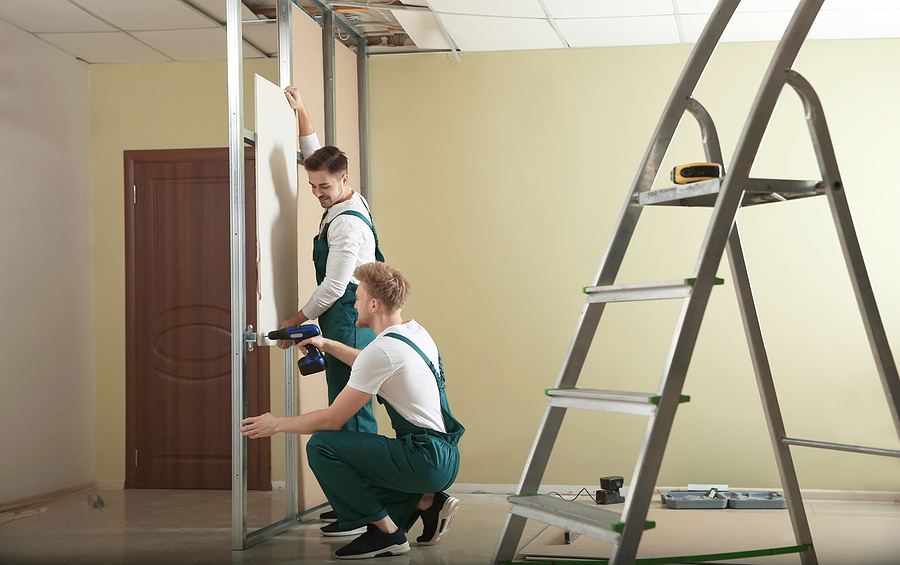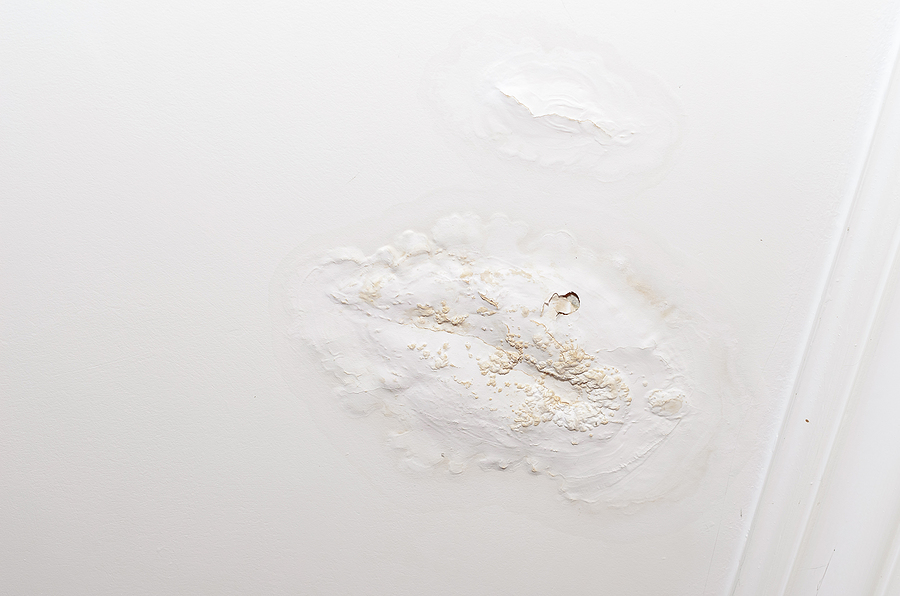Staring at cracked, uneven walls in your home can be frustrating. Whether you’re dealing with minor drywall damage or planning a major renovation, the quality of your walls directly impacts your home’s appearance, value, and structural integrity. While DIY videos make drywalling look simple, the reality is far more complex—and the consequences of poor installation can be costly.
Professional drywall contractors bring expertise, efficiency, and peace of mind to your project. From understanding Indianapolis building codes to selecting the right materials for your specific needs, these skilled professionals ensure your walls look flawless and stand the test of time. When you consider the time, tools, and potential mistakes involved in DIY drywalling, hiring experts becomes not just a smart choice, but an investment in your home’s future.

The Clear Benefits of Hiring Professional Drywall Contractors
Superior Quality and Craftsmanship
Professional drywall contractors possess years of experience perfecting their craft. They understand the nuances of different wall textures, know how to create seamless joints, and can match existing finishes with precision. This expertise translates into walls that look professionally finished—smooth, even, and ready for paint or wallpaper.
Quality materials matter just as much as skilled application. Experienced contractors use top-grade drywall and supplies specifically chosen for your project’s requirements. They know which products work best for basement drywall in humid conditions, or what type of finishing compound creates the most durable results for high-traffic areas.
Time Savings and Efficiency
Drywall installation involves multiple steps: measuring, cutting, hanging, taping, mudding, sanding, and finishing. Each phase requires specific tools and techniques. Professional contractors complete these tasks efficiently because they’ve mastered the process through repetition and experience.
What might take a homeowner several weekends to complete, professionals can often finish in a fraction of the time. This efficiency minimizes disruption to your daily routine and gets your space back to normal quickly.
Code Compliance and Safety
Indianapolis building codes exist to ensure safety and structural integrity. Professional drywall contractors like our team at Drywall By Renso in Indianapolis understand these regulations and ensure your project meets all requirements. This knowledge is particularly important for projects involving metal stud framing service or structural modifications.
Proper installation also addresses safety concerns like fire resistance and moisture control. Professionals know where fire-rated drywall is required and how to install it correctly, protecting your family and property.
Contact Us for Expert Drywall Solutions 🪄
Finding the Right Drywall Repair Company
Research and Referrals
Start your search by asking friends, family, and neighbors for recommendations. Personal referrals often provide the most reliable insights into a contractor’s work quality and professionalism. Local hardware stores and building supply companies can also suggest reputable contractors they work with regularly.
Online research supplements personal recommendations. Check company websites, read customer reviews, and verify business listings. Look for contractors with established local presence and strong community ties.
Evaluating Portfolios and Reviews
Request examples of previous work, particularly projects similar to yours. Whether you need basement drywall installation or garage drywalling, seeing completed projects helps you assess quality and craftsmanship. Pay attention to details like joint finishing, texture matching, and overall appearance.
Customer reviews reveal important information about reliability, communication, and problem-solving abilities. Look for patterns in feedback—consistent praise for punctuality, cleanliness, and quality indicates a professional operation.
Essential Questions to Ask Potential Contractors
Experience and Expertise
Ask about the contractor’s experience with your specific type of project. Basement drywall requires different considerations than standard room installations due to moisture and temperature variations. Garage drywalling might involve working around electrical systems or storage requirements.
Inquire about their familiarity with local building codes and permit requirements. Indianapolis-area contractors should demonstrate clear knowledge of regional regulations and inspection processes.
Insurance and Licensing
Verify that contractors carry appropriate insurance coverage, including general liability and workers’ compensation. This protection safeguards you from potential liability if accidents occur during the project.
Check licensing requirements in your area and confirm that contractors meet all necessary qualifications. Licensed professionals demonstrate commitment to their trade and adherence to industry standards.
Detailed Estimates
Request written estimates that break down material costs, labor charges, and project timeline. Comprehensive estimates help you compare contractors fairly and avoid surprise charges later.
Ask about potential additional costs that might arise during the project. Honest contractors will discuss possible complications and how they handle unexpected issues.
Understanding Drywall Installation Cost Factors
Materials and Supplies
Drywall costs vary based on thickness, type, and special properties. Standard drywall works well for most applications, but moisture-resistant options are essential for basements and other humid areas. Fire-rated drywall costs more but provides crucial safety benefits in specific applications.
Additional materials include joint compound, tape, fasteners, and finishing supplies. Quality materials cost more initially but provide better long-term results and durability.
Labor and Project Complexity
Labor costs depend on project size, complexity, and local market rates. Simple drywall repair jobs cost less per square foot than complex installations involving curves, archways, or multiple levels.
Metal stud framing service adds to project costs but provides superior strength and durability compared to wood framing. The investment often pays off through reduced maintenance and longer-lasting results.
Project Scope and Timeline
Larger projects typically offer better per-square-foot pricing due to economies of scale. However, rush jobs or projects with tight deadlines may incur premium charges.
Consider the total project scope when budgeting. Combining drywall installation with related work like electrical or plumbing modifications can sometimes reduce overall costs through coordinated scheduling.
View Our Residential & Commercial Drywall Services 🔎
Common Mistakes to Avoid
DIY Pitfalls
Many homeowners underestimate the skill required for quality drywall installation. Common DIY mistakes include uneven joints, visible seams, poor texture matching, and inadequate fastening. These errors often require professional correction, ultimately costing more than hiring experts initially.
Tool requirements for quality drywall work extend beyond basic hand tools. Professional-grade equipment produces better results but represents significant investment for occasional use.
Choosing Unqualified Contractors
Extremely low bids often indicate corners will be cut on materials or workmanship. While cost matters, focus on value rather than just price. Quality work costs more upfront but saves money through durability and reduced maintenance needs.
Verify that contractors can handle your specific project requirements. General handymen might struggle with complex drywall installations that require specialized techniques or knowledge.
Frequently Asked Questions
How long does drywall installation typically take?
Project duration depends on size and complexity. Simple repairs might take a few hours, while full room installations typically require 2-3 days for completion, including drying time between coats.
What are the cost factors for drywall repair or installation?
Costs vary based on materials, labor, project size, and complexity. Factors include wall height, ceiling work, texture matching, and access difficulties. Geographic location also influences pricing.
Are your drywall contractors licensed and insured?
Professional contractors should carry appropriate licensing and insurance coverage. Always verify these credentials before hiring, as they protect both you and the contractor during the project.
Can you handle both small repairs and large installations?
Experienced contractors typically handle projects of all sizes, from minor patch repairs to complete home installations. Many prefer variety in their work and can adapt to different project requirements.
What type of drywall do you recommend for basements or garages?
Moisture-resistant drywall works best in basements due to humidity concerns. Garages often use standard drywall unless moisture or temperature extremes are concerns. Professional assessment determines optimal materials for each situation.
Final Thoughts
Hiring professional drywall contractors represents a wise investment in your home’s appearance, value, and structural integrity. The expertise, efficiency, and quality assurance these professionals provide far outweigh the initial cost difference compared to DIY attempts.
When searching for contractors in Indianapolis and surrounding areas, prioritize experience, credentials, and local expertise. The right professional will understand regional building codes, climate considerations, and material requirements specific to your area.
Quality drywall installation enhances your living space while providing long-lasting durability and value. Whether you need minor drywall repair, complete room installation, or specialized services like metal stud framing, professional contractors deliver results that stand the test of time.
Contact Drywall By Renso today for a free consultation and estimate. Our certified professionals bring local expertise, comprehensive services, and proven quality to every project, ensuring your walls look perfect and perform flawlessly for years to come.
Related Post: Avoid DIY Disasters: The Importance of Professional Drywall Installation

